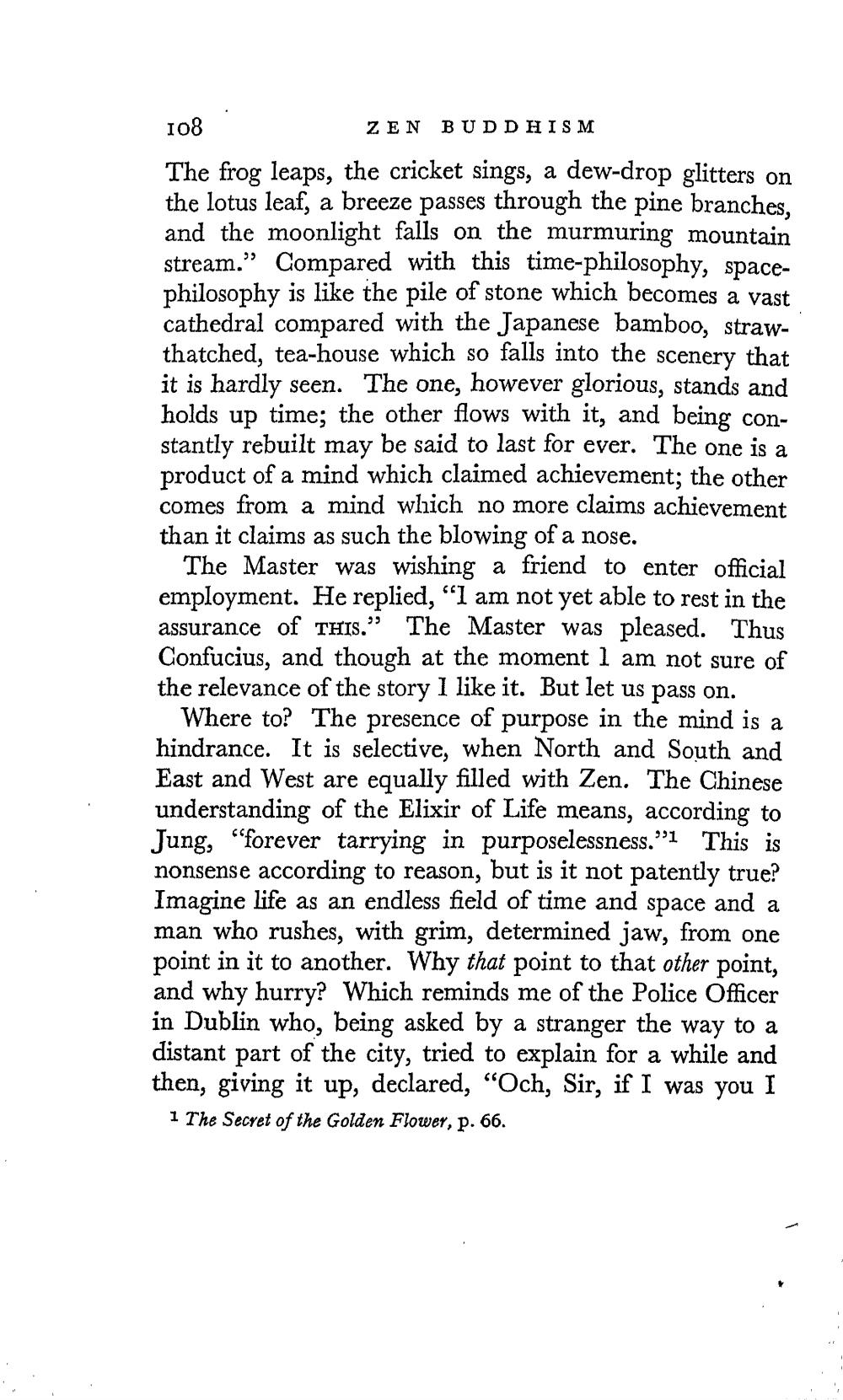________________
108
ZEN BUDDHISM
The frog leaps, the cricket sings, a dew-drop glitters on the lotus leaf, a breeze passes through the pine branches, and the moonlight falls on the murmuring mountain stream." Compared with this time-philosophy, spacephilosophy is like the pile of stone which becomes a vast cathedral compared with the Japanese bamboo, strawthatched, tea-house which so falls into the scenery that it is hardly seen. The one, however glorious, stands and holds up time; the other flows with it, and being constantly rebuilt may be said to last for ever. The one is a product of a mind which claimed achievement; the other comes from a mind which no more claims achievement than it claims as such the blowing of a nose.
The Master was wishing a friend to enter official employment. He replied, "I am not yet able to rest in the assurance of THIS." The Master was pleased. Thus Confucius, and though at the moment 1 am not sure of the relevance of the story I like it. But let us pass on.
Where to? The presence of purpose in the mind is a hindrance. It is selective, when North and South and East and West are equally filled with Zen. The Chinese understanding of the Elixir of Life means, according to Jung, "forever tarrying in purposelessness."1 This is nonsense according to reason, but is it not patently true? Imagine life as an endless field of time and space and a man who rushes, with grim, determined jaw, from one point in it to another. Why that point to that other point, and why hurry? Which reminds me of the Police Officer in Dublin who, being asked by a stranger the way to a distant part of the city, tried to explain for a while and then, giving it up, declared, "Och, Sir, if I was you I
1 The Secret of the Golden Flower, p. 66.




